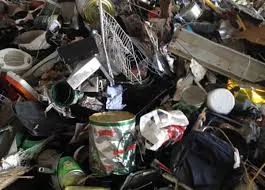
9 月 . 27, 2024 19:02 Back to list
How Do You Recycle Electronics?
In today's fast-paced technological world, electronic devices have become an integral part of our daily lives. From smartphones and laptops to household appliances, these gadgets significantly enhance our productivity and entertainment. However, as technology evolves, older electronics often become obsolete, leading to an increasing volume of electronic waste, commonly known as e-waste. Understanding how to recycle electronics is essential to minimizing environmental impact and promoting sustainable practices.
Why Recycle Electronics?
Recycling electronics is crucial for several reasons. First, many electronic devices contain hazardous materials, such as lead, mercury, and cadmium, which can be detrimental to the environment if discarded improperly. When e-waste ends up in landfills, these toxic substances can leach into the soil and groundwater, posing serious health risks to humans and wildlife.
Secondly, recycling electronics conserves valuable resources. Many components of electronic devices are made from precious metals like gold, silver, and copper. By recycling these materials, we reduce the need for mining and processing new raw materials, which has environmental and energy costs associated with it. Furthermore, recycling helps to reduce energy consumption and greenhouse gas emissions.
Steps to Recycle Electronics
1. Check Local Regulations and Programs Before recycling, it’s important to familiarize yourself with local regulations regarding e-waste disposal. Many regions have specific programs and designated drop-off locations for recycling electronics. Check with your city or municipality for options available in your area.

2. Clear Your Data Before disposing of or recycling any electronic device, ensure that all personal data is removed. For computers and smartphones, perform a factory reset to erase all information. Additionally, remove any SIM cards and memory cards from devices to safeguard your personal data.
3. Identify Recyclable Items Not all electronics can be recycled in the same way. Common items that can be recycled include smartphones, computers, tablets, printers, televisions, and gaming consoles. Identifying which of your devices are recyclable will help you in the next steps.
4. Find Certified E-Waste Recyclers Look for certified e-waste recyclers in your area. These facilities follow strict guidelines for handling and processing electronic waste, ensuring that harmful materials are disposed of safely and that recyclable components are recovered. Websites such as Earth911 and the e-Stewards Directory can help you locate certified recyclers near you.
5. Participate in Take-Back Programs Many manufacturers and retailers offer take-back programs for their products. Brands like Best Buy, Staples, and certain electronics manufacturers provide services where you can return old devices for recycling. These programs often ensure that e-waste is recycled responsibly while sometimes offering incentives like store credit for the returned devices.
6. Consider Donations If your electronic device is still in working condition, consider donating it. Many non-profit organizations accept functioning electronics to assist those in need or to support educational programs. This not only extends the life of the device but also supports your community.
7. Educate Others Lastly, promotion of responsible e-waste recycling is vital. Share your knowledge with friends and family about the importance of recycling electronics and how to do it properly. The more people are informed, the greater the impact we can collectively have on reducing e-waste.
In conclusion, recycling electronics is a critical step toward a sustainable future. By properly disposing of e-waste, we not only protect the environment from harmful substances but also conserve precious resources. Whether you’re an individual looking to discard old gadgets or a business managing electronic assets, understanding how to recycle electronics responsibly can contribute to a healthier planet for future generations.
Latest news
Unveiling the Power of Eddy Current Separator
NewsSep.25,2024
Transform Your Home Recyclin:home metal shredder
NewsSep.25,2024
The Future of Waste Management with Recycling Line Picker
NewsSep.25,2024
The Benefits of a Metal Recycling Plant
NewsSep.25,2024
Revolutionize Material Separation with Onwang Technology
NewsSep.25,2024
Innovative Waste Management: Unveiling the MSW Sorting Plant
NewsSep.25,2024